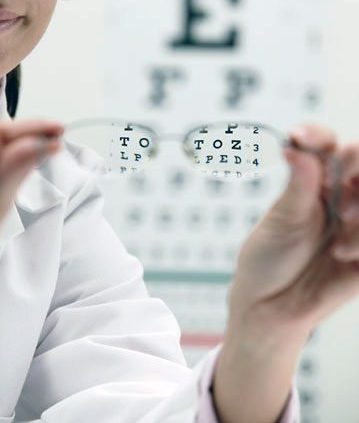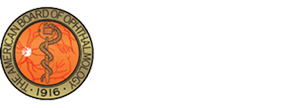Presbyopia
 Presbyopia (from the Greek for “old eyes”) is like death and taxes: everyone will get it, usually around the age of 40. Patients with presbyopia have normal distance vision but poor reading vision. A typical story is that patients will come to us with a history of excellent vision for both far and near earlier in life followed by gradually diminishing near vision in late middle age. As presbyopia worsens, you have to hold objects farther and farther away in order to read, until finally you are no longer able to read without the aid of reading glasses, bifocals, or contact lenses (multifocal or monovision).
Presbyopia (from the Greek for “old eyes”) is like death and taxes: everyone will get it, usually around the age of 40. Patients with presbyopia have normal distance vision but poor reading vision. A typical story is that patients will come to us with a history of excellent vision for both far and near earlier in life followed by gradually diminishing near vision in late middle age. As presbyopia worsens, you have to hold objects farther and farther away in order to read, until finally you are no longer able to read without the aid of reading glasses, bifocals, or contact lenses (multifocal or monovision).
Why does this happen? Understand that the reason you have excellent vision for both far and near in the early stages of life is because of the elastic properties of the human lens. Being elastic, the lens has the ability to change shape, and hence change focus, for objects both far and near in a seamless fashion through a process called accommodation. You don’t have to think about it; it just happens because of reflexes that are hard wired into your nervous system. As we get older, the lens loses its flexible properties and thus its ability to change shape to focus for far and near. Typically, once the lens loses its elasticity, the eye becomes locked in to a focal point for distance and then you become dependent upon reading glasses and bifocals for near vision.
What can we do to treat presbyopia? The simplest solutions include reading glasses and bifocals. Readers have the virtue of being inexpensive, available universally at any drug store for just a few dollars. Start with a lower power (around +1.25 or +1.50) early in life and understand that every few years you will need to increase the power. There is no right or wrong power; whatever works is the one for you. Realize that higher powers will shorten your working distance and bring things closer to you whereas lower powers will lengthen your working distance and push things farther away. Thus you may want different powers for different tasks; e.g., a higher power for reading close up or a lower power for looking at something farther away like a computer screen.
Surgical corrections for presbyopia are available, although these are not for everyone. The ones that work best depend upon your particular situation and age, and these include LASIK for monovision and Refractive Lens Exchange utilizing either a Multifocal IOL or monovision strategy. Older surgical strategies on the cornea such as LTK (Laser Thermal Keratoplasty) and CK (Conductive Keratoplasty) ultimately proved to be only temporary in effect and have been abandoned. Some newer corneal strategies have recently been developed but these typically improve near vision at the expense of far vision and have yet to be proven. Finally, there are eyedrops for presbyopia under development but there are not yet FDA approved.


